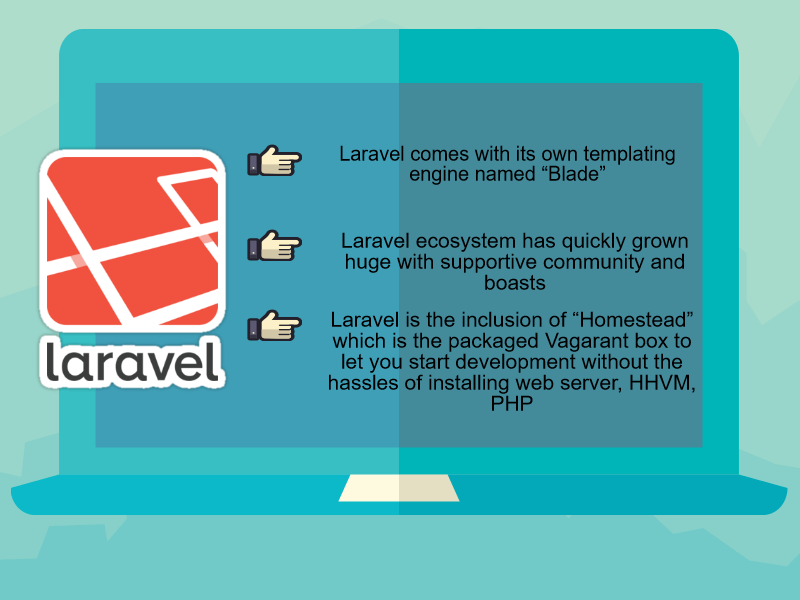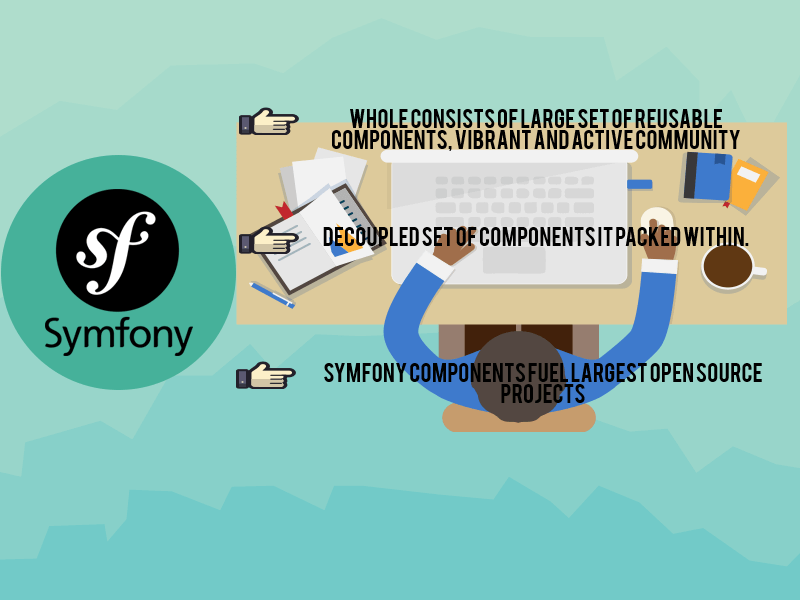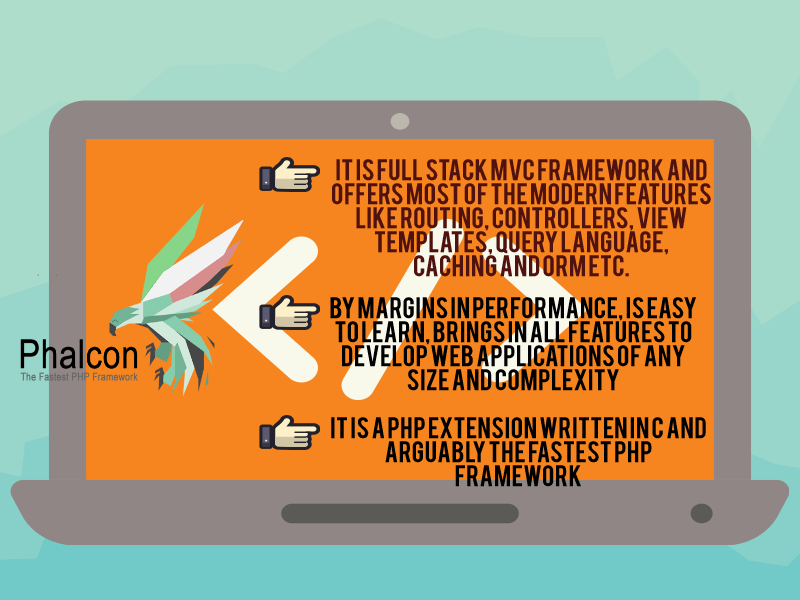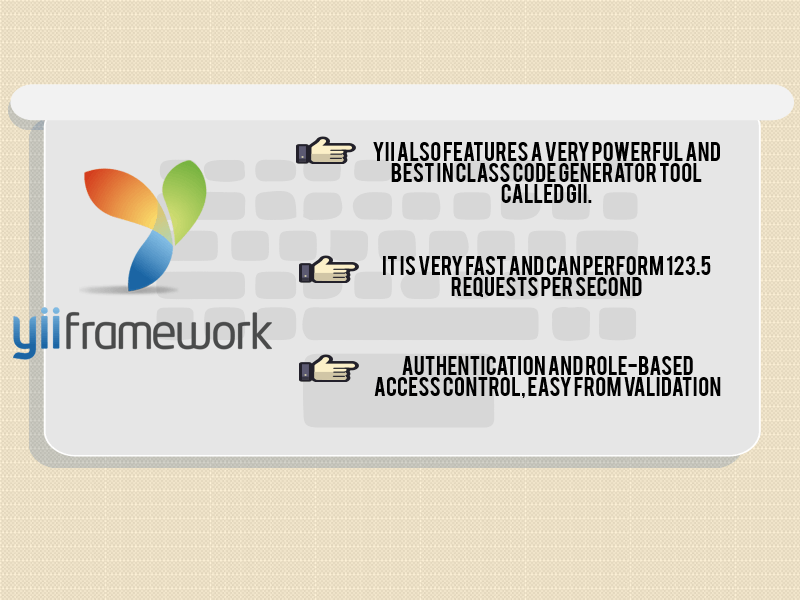Development of software applications has been always a complex and a time consuming process. The developer wants to write clean and reusable code, which could help them to develop project smoothly and save their time. The need for a more structured natural way of development emerged and PHP frameworks provided developers with an adequate solution to overcome these developing obstacles.
PHP has evolved a lot since the first inline code snippets appeared in static HTML files. It has become most popular server-side scripting language in the world and has been used by millions of websites today. According to W3Techs survey, PHP is used by 82% of web servers.
PHP High-Ends frameworks helps you to build generic components and you can spend more time to specific tasks and functionality, It’s not easy to decide which framework is best but in this article we have carefully handpicked popular PHP frameworks that can best facilitate and streamline the process of backend web development are:
Laravel
Laravel is one of the best of PHP frameworks and spans the widths and depths of large scale web application development. Laravel ecosystem has quickly grown huge with supportive community and boasts.
This framework is built to be simple, easy to learn and supports rapid application development. You get rich set of features to bring any large scale project to life within days. Laravel comes with its own templating engine named “Blade”. The best thing about Blade is that it allows you to write plain PHP in the templates which essentially means that Blade brings no performance overheads to your application.
Another power fact about Laravel is the inclusion of “Homestead” which is the packaged Vagarant box to let you start development without the hassles of installing web server, HHVM, PHP or any other package on your local machine or server.
Laravel team has recently released “Lumen”, a micro PHP framework for the web developers who like to build lightning fast API’s as well as Laravel based services.
Symfony
Symfony 2 is another known PHP framework to get your job done for very complex and large scale enterprise project at hand. Symfony ecosystem as a whole consists of large set of reusable components, vibrant and active community. Symfony framework have taken PHP to the next level.
Symfony framework gets all the super powers from the reusable and decoupled set of components it packs within. The power features of Symfony components can be guessed from the fact that even the big brother Laravel utilizes many of Symfony components.
Symfony components fuel some of the largest open source projects like Drupal, PHPBB, PIWIk, OROCRM and Laravel, to name a few. Symfony components also power one of the most popular templating engine named “Twig”.
Phalcon
Phalcon is another modern framework. Phalcon framework is built for speed, it is a PHP extension written in C and arguably the fastest PHP framework available as of today. Even though it is an extension written in C, it is full stack MVC framework and offers most of the modern features like routing, controllers, view templates, query language, Caching and ORM etc.
The framework beats all other frameworks by margins in performance, is easy to learn, brings in all features to develop web applications of any size and complexity, and PHP developers are loving it.
Phalcon is among the frameworks that have seen success in a very short span of time. It is a perfect candidate to complete for the top slot in the world of PHP frameworks.
Slightly underrated at the moment, but that is only because developers are finding it hard to accept that a framework is delivered as PHP extension, and written in C. Phalcon, otherwise is very well document with examples and beginners can easily get started with Phalcon PHP framework.
Yii
Yii is amongst the oldest of PHP frameworks. It was lagging behind Laravel and Symfony for last couple of years but with the release of Yii 2.0, it is becoming the preferred choice for enterprise grade web application development.
Yii 2.0 is a modern PHP framework with complete set of features to cater to the needs of modern websites and applications development. Yii also features a very powerful and best in class code generator tool called Gii.
Yii framework competes with none other than Symfony when it comes to building multitenant, secure and performant (powerful caching) applications that need complex workflows. CMS and CRM are among the categories where Yii shines along with Symfony.
Yii 0.2 community is very active, helpful and determined to take the Yii 0.2 framework to the next level. It also hosts one of the best documentation you will see in the world of PHP frameworks.
This is another giant from the old times that doesn’t want to succumb in front of the most sophisticated modern PHP frameworks like Laravel and Phalcon. With its latest version “cakePHP 3.0”, this framework once again is back in demand and makes a definite point that it is here to stay.
CakePHP framework can be used free of cost in personal. It is an open source as well as commercial project. CakePHP has held the spot of top PHP framework for a long time span and attracted corporates like BMW, Hyundai, Zumba and Express as its early users. CakePHP 3.0 features are enhanced session management, standalone libraries and decoupled components for better modularity, improvements in ORM and many helpers.
Phenomenon of PHP frameworks is very old but since the overall web development landscape is fast changing and so are the frameworks. PHP frameworks have always been the default choice of developers for creating complex web applications, specifically large scale open source projects, and enterprise CMS and CRM systems.
Mantra Labs deep dives into latest trends and innovations in the Web, Mobile, Enterprise and Internet of Things space. The insights generated from these studies helps us provide more value for our clients.
Knowledge thats worth delivered in your inbox





